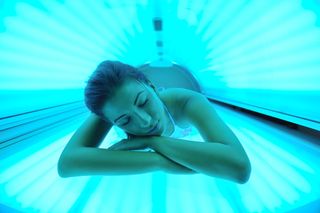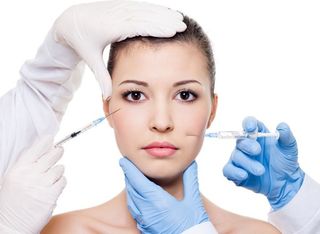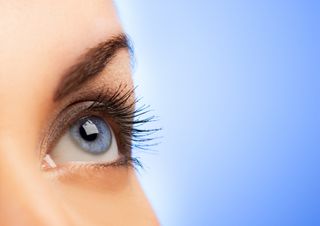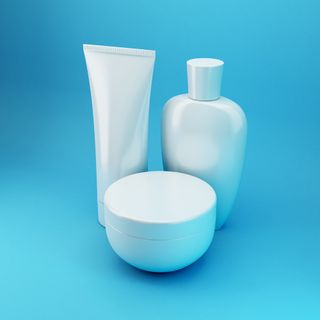7 Beauty Trends that Are Bad for Your Health
7 Beauty Trends that Are Bad for Your Health

Throughout history, women and men have gone to extreme lengths to look good. Sometimes even at the cost of their health.
The same quest for beauty exists today. Take a look at 7 beauty trends that aren't so good for your health.
Tanning

Despite the serious health risks linked with indoor tanning, many Americans, particularly teens, still sit under sunlamps and tanning beds to get a bronzed look, according to a recent study.
Indoor tanning beds and sunlamps emits ultraviolet (UV) radiation that can damage the skin, which can lead to premature skin aging, skin burns, eye damage and skin cancer.
Nearly 28 million people tan indoors in the United States annually, according to the American Academy of Dermatology. Of these, 2.3 million are teens.
Moreover, frequent exposure to UV light may lead to an addiction to tanning. A 2010 study in the journal Clinical and Experimental Dermatology found that females, and those who are start tanning at a younger age may be particularly vulnerable to developing a compulsive desire to tan.
Braids and weaves

Getting braids or a weave may contribute to permanent hair loss in African-American women, according to a 2011 study published in the Archives of Dermatology.
This type of hair loss, called central centrifugal cicatricial alopecia, occurs on the crown and can spread throughout the scalp.
Researchers surveyed 326 African-American women about their family and medical histories, and their hair-grooming habits. Dermatologists then performed a scalp examination to grade the women's hair loss.
They found that nearly 60 percent of the women showed signs of advanced hair loss.
Braids and weaves are common hair treatments in the African-American community, researchers said. The treatments can be expensive, so they may be left in "for weeks or months at a time to justify the money spent," researchers wrote in the study.
Tattoos

The number of tattoos a person gets is linked to an increased risk of Hepatitis C, a 2010 study suggested. Especially if the needle used to create your tattoo is contaminated with infected blood.
Hepatitis C is caused by a virus that attacks and inflames the liver, which can lead to cirrhosis, or scarring, of the liver tissue, liver cancer and liver failure, according to the Mayo Clinic.
People who get tattoos are also prone to skin infections, causing redness, swelling and pain.
Moreover, tattoo dyes that are red, green, yellow and blue can cause allergic skin reactions, such as an itchy rash at the tattoo site.
Botox

Botox injections have become the quick fix for facial wrinkles.
Botox, a medicinal form of botulinum toxin type A, relaxes muscle for several months. The toxin is produced by Clostridium botulinum, a bacteria that causes botulism, a rare but serious illness.
Although the injections are generally safe, side effects and complications can occur, including pain and bruising at the injection site, headaches, nausea and temporary muscle weakness.
In 2009, the U.S. Food and Drug Administration approved Botox for cosmetic use, but with a boxed warning label that states a risk of the toxin spreading to other areas of the body, causing symptoms similar to those of botulism, including difficulty swallowing and breathing and even death.
But these symptoms have mostly been reported in children with cerebral palsy who are treated with Botox for muscle spasticity, a use of the drug that has not been approved by FDA.
Contact lenses that widen your eyes

Circle Lenses, which are contact lenses that make your eyes appear bigger, could cause serious vision problems, according to some experts.
"Consumers risk significant eye injuries even blindness when they buy contact lenses without a valid prescription or help from an eye professional, Karen Riley, an official with the Food and Drug Administration, told the New York Times in 2010.
The lenses have not been approved by the FDA, and it's illegal to sell them in the U.S. However, they're available for less than $20 on the Internet, reports ABC news.
The lenses have become particularly popular among teen girls.
Skin bleaching creams

Some cosmetic products, including skin-lightening creams, contain high levels of mercury, according to the FDA.
Mercury is used in skin-lightening creams because it blocks the production of the skin pigment melanin, reported NPR's Health blog in March.
High levels of mercury can also be found in some soaps, lotions and anti-aging products that are manufactured overseas and sold illegally in the U.S., the FDA said.
"Exposure to mercury can have serious health consequences," said Charles Lee, M.D., a senior medical advisor at FDA. It can damage the kidneys and the nervous system, and interfere with the development of the brain in unborn children and very young children.
The FDA recommends checking the label of any skin lightening or anti-aging products. If you see the words like mercurous chloride, calomel, mercuric, mercurio, or mercury, stop using the product immediately.
Hair straightening products

Certain hair straightening products, such as the Brazilian Blowout, contain various chemicals including dangerously high levels of formaldehyde, announced the FDA in a warning letter in 2011.
Formaldehyde is a strong-smelling gas that can irritate the eyes and nose, and cause allergic reactions such as asthma-like breathing problems and skin rashes and itching, if inhaled.
In fact, the U.S. Occupational Safety and Health Administration (OSHA) issued a hazard alert in April 2011 to hair salon owners and workers about the risk of formaldehyde exposure from working with these products.
Hundreds of beauty salons offer the hair straightening treatment, which is remarkably popular despite a price that can run up to $500, reported the New York Times.
Products like Brazilian Blowout are often misleading, labeled as formaldehyde-free when in fact they're not, according to the FDA.
Follow MyHealthNewsDaily on Twitter @MyHealth_MHND . Find us on Facebook.
Sign up for the Live Science daily newsletter now
Get the world’s most fascinating discoveries delivered straight to your inbox.
